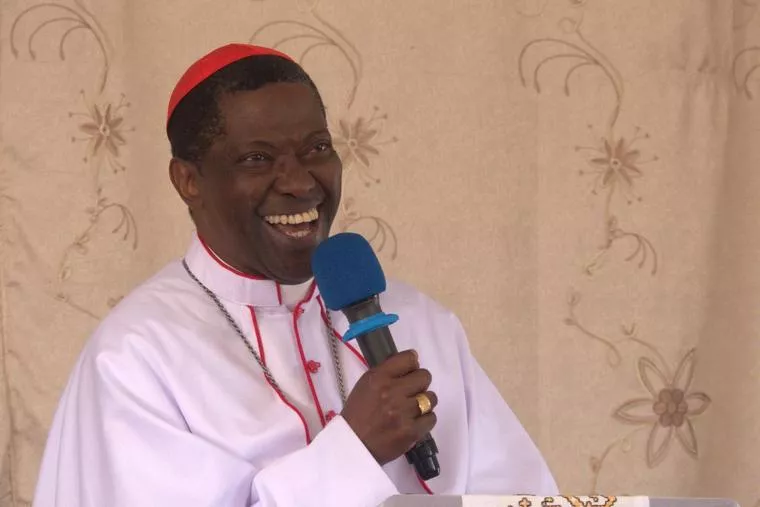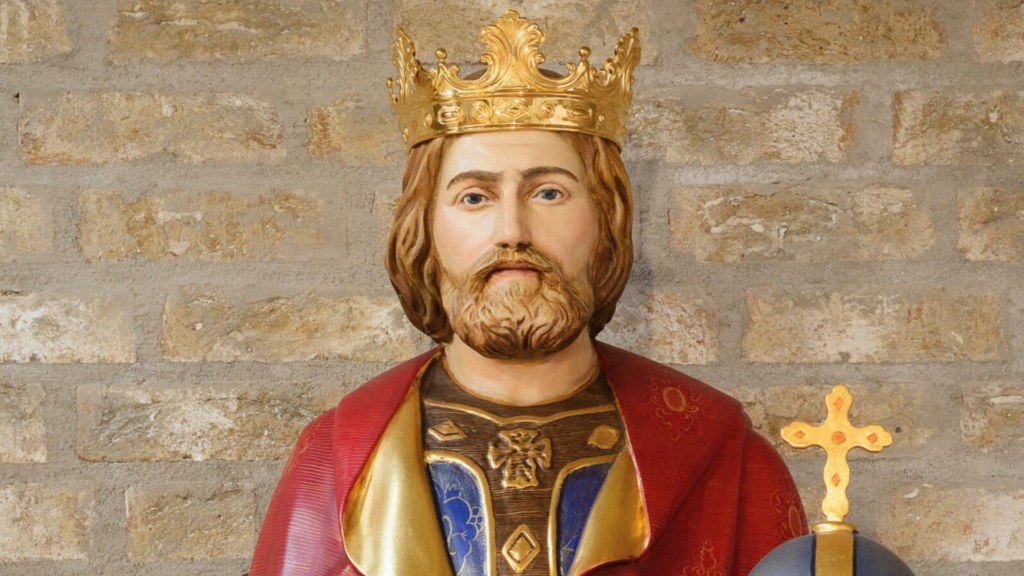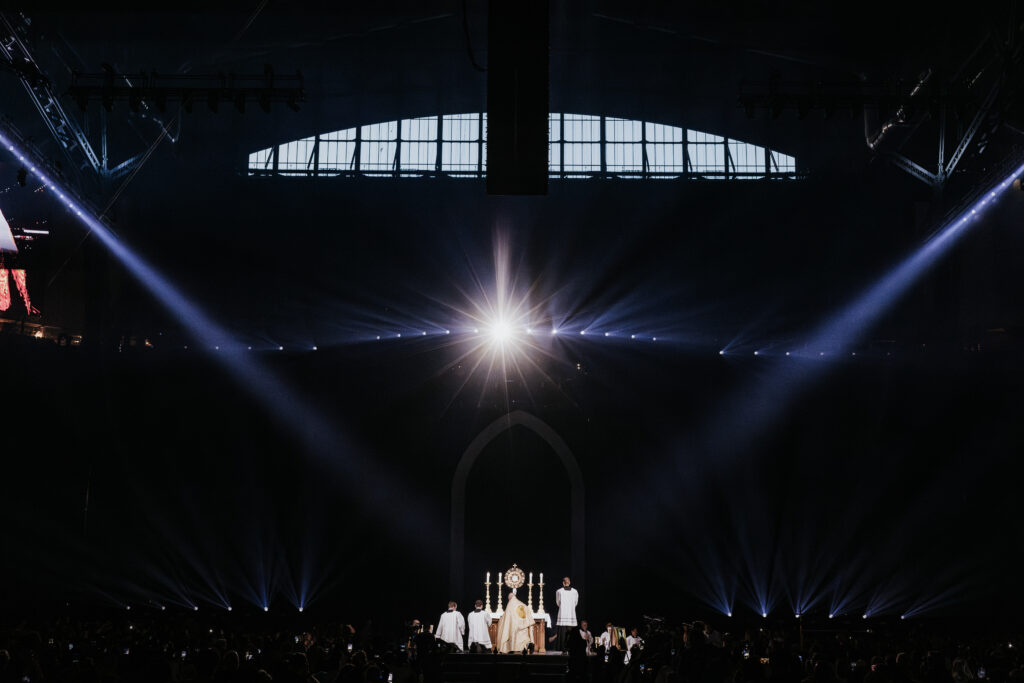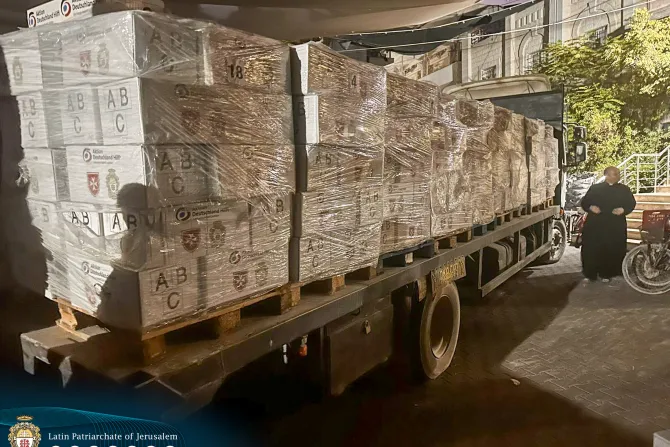Catholic Church in Africa is Booming, But Faces ‘Big Challenges,’ Says Continent’s Newest Cardinal
An interview with Cardinal Protase Rugambwa
By Jonathan Liedl
TABORA, Tanzania — One of Africa’s newest cardinals affirmed that the people of his continent will play a leading role in the future of Catholicism, but also acknowledged that the Church in Africa faces serious challenges amid its boom.
Citing the incredible growth in the Church in Africa, which has 250 million more adherents today than 125 years ago and is projected to be home to one out of every three Catholics in the world by 2050, Cardinal Protase Rugambwa told the Register that it is “true” that “the future of the Church is in Africa.”
“What is the Church, after all?” asked the leader of the Archdiocese of Tabora, Tanzania. “We are talking about the presence of the people; the believers, the adherents, the followers. In Africa, there is no question that if you count those who have been baptized, with each succeeding day the numbers are increasing.”
At the same time, Cardinal Rugambwa said that the Church in Africa is confronted by “big challenges,” such as obstacles to forming quality priests to serve its people, the rise of Christian sectarianism, as well as ideological pressures from outside.
“We have different theories, different ideas coming, different ideologies,” said the former secretary of the Vatican’s evangelization office, specifically referencing gender ideology. “So we have to get prepared.”
When asked if there are those in the universal Church who don’t seem to value the concerns and views of African Catholics, an ongoing concern among some Church leaders on the continent, Cardinal Rugambwa told the Register that those who disregard Africa do so to their own disadvantage.
“If they don’t value that, that is their problem,” said the East African prelate. “That’s their problem. But they will see it,” he said, referring to Africa’s growth and increasing influence.
Cardinal Rugambwa, who turned 64 on May 31, made his remarks to the Register during a sit-down interview in his offices in Tabora, in the shadows of the St. Theresia Cathedral.
A native of Africa’s fifth most populated country, the Tanzanian came to Tabora in early 2023 after serving for 11 years in the Vatican’s Dicastery for Evangelization, including from November 2017 to April 2023 as the office’s secretary.
Given the name “Rugambwa” at birth in honor of Africa’s first native cardinal and fellow Tanzanian, Cardinal Laurean Rugambwa (1912-1997), the East African was added to the College of Cardinals by Pope Francis on Sept. 30 last year in Rome, one of three new African prelates to join the increasingly diverse body.
Valuing African Voices
Cardinal Rugambwa’s caution to those who might disregard the Church in Africa comes at a time when African Church leaders have increasingly expressed concern that their voices aren’t being respected.
Following the Vatican’s publication of the controversial Fiducia Supplicans in December 2023, a document most episcopal conferences in Africa refused to apply, Dominican Father Anthony Akinwale told the Register that German Cardinal Walter Kasper’s infamous 2015 dismissal of African Catholics’ contribution “continues to echo” in the minds of Church leaders on the continent.
“I know a few people who think that that is still the agenda,” the theological adviser to bishops of Nigeria said at the time.
Congolese Cardinal Fridolin Ambongo, the president of Africa’s symposium of bishops conferences and a member of Pope Francis’s council of cardinal advisers, went further, saying that the approval for non-liturgical blessing of persons in same-sex unions “brought discredit” to the Synod on Synodality, presumably for disregarding the views of African bishops and others who had participated in the synod’s October 2023 session.
Others have questioned why, at a moment when Africa is eclipsing Europe in terms of the number of Catholic adherents, there is not a single African heading a Vatican office for the first time in decades.
For his part, Cardinal Rugambwa simply emphasized that African Catholics should be faithful to the example of Christ, who said that others would come to recognize his divinity through the fruitfulness of his works.
“So from what the Church in Africa will do, the people will know that this is the Church of God.”
Evangelizing Back Home
Even before he served in the Roman Curia, evangelization had been a major theme of Cardinal Rugambwa’s ministry. Upon his episcopal ordination in 2008, the Tanzanian took “Go Into the Whole World” as his motto, and selected an episcopal coat of arms that emphasized carrying Christ’s liberating mission to all parts of the world, sent by the Father and accompanied by the Blessed Mother.
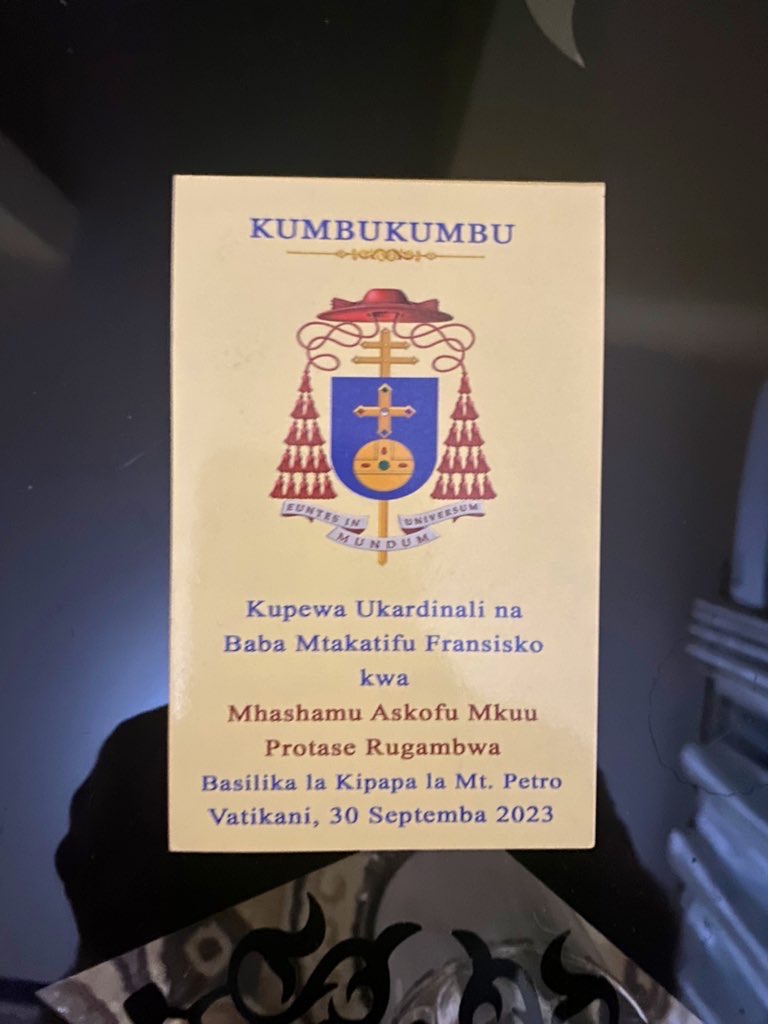
Now back in Tanzania, a country where 27% of 65.5 million citizens are Catholic, Cardinal Rugambwa’s focus is on allowing the Gospel to take deeper root among his own people — and a particular priority of that agenda is preparing those who will be forming the lay faithful, namely seminarians preparing for priesthood.
The seminaries of Tanzania are full, and many dioceses even have waitlists, leading to the recent establishment of a new, sixth national major seminary.
But Cardinal Rugambwa isn’t content simply to have high numbers. He recalled his own advice to bishops from mission dioceses who visited him at the Dicastery for Evangelization, boasting of their full seminaries.
“Brothers be careful,” the former secretary of the Dicastery for Evangelization recalls telling these kinds of visitors. “Don’t get satisfied, don’t be naïve like that!”
Now, with regards to his own seminarians, Cardinal Rugambwa told the Register, “I’m not after numbers, I’m after quality” — with the question of “how do you form these numbers” at the forefront of his mind.
Currently, major seminaries in Tanzania have staggeringly high ratios of seminarians to formators, for instance, as many as 300 seminarians to 14 priestly formators. By comparison, ratios of formators to seminarians are typically below 1 to 10 in the United States.
The risk, Cardinal Rugambwa says, is that these future priests may not receive an integrated formation, receiving adequate preparation in the intellectual life, for instance, while other areas like spiritual or human formation are neglected.
“Unfortunately, this is a big challenge we are facing, I can admit it. I don’t have to hide it,” said the cardinal, who had visited a major seminary in his archdiocese the day before to celebrate Mass and take part in the graduation ceremony of 40 fourth-year theologians.
The solution, he says, is to prioritize the preparation of formators “who are dedicated to this work.”
“We have to tell our young priests who are coming, even those who are being formed in the seminary, this is a big job you have to face in the future,” the cardinal shared.
Challenges Facing African Church
Cardinal Rugambwa also says that today’s seminarians need to be formed to not only face the challenges of the Church in Africa today — such as syncretism, which blends Catholicism with the beliefs and practices of other religions like indigenous African paganism — but also those of the future.
“The Church of yesterday is not the Church of tomorrow,” he explained. “So they have to be ‘existential’ even, to understand that we are formed looking to the situation and the problems of today, but expecting also to be facing even more difficult problems that are coming in the future.”
The cardinal mentioned gender theory as one of these challenges, but spoke especially of problematic notions of freedom that are beginning to take hold in Africa.
“It’s an exaggerated freedom,” Cardinal Rugambwa explained. “Freedom that doesn’t want even to listen or to understand or to know that human beings are limited.”
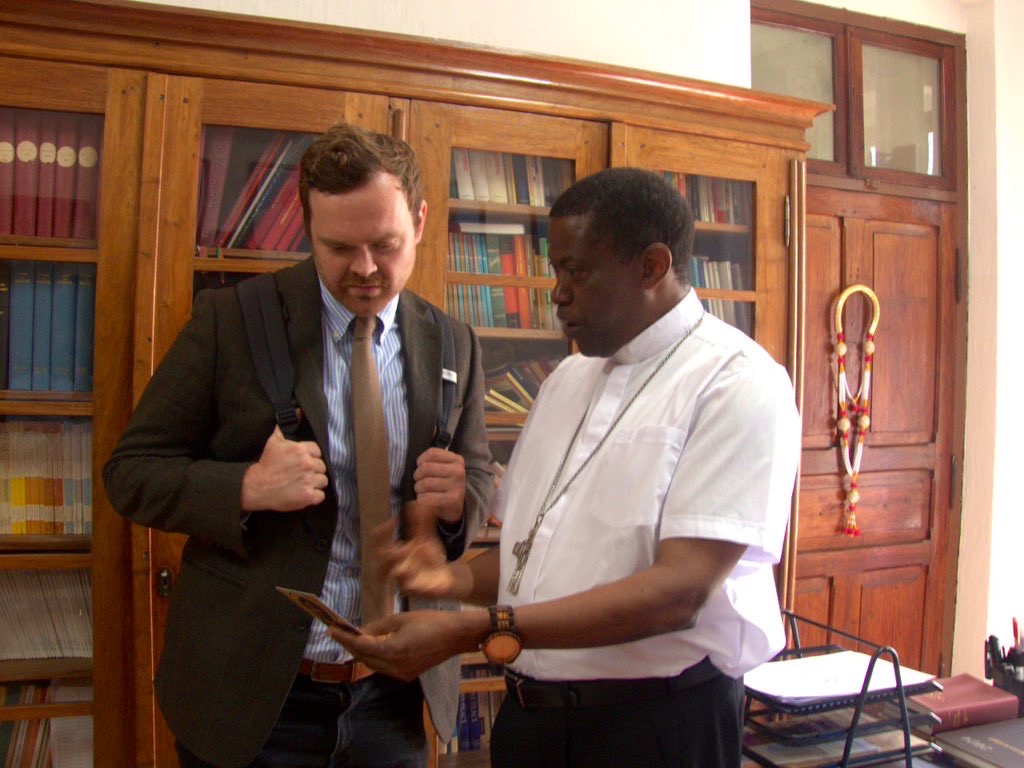
And the Tanzanian prelate said that these ideas aren’t simply coming from secular sources, but are being communicated even within the Church.
“Nowadays, with this global Church, globalization as we know it, what you see happening in America, it’s already happening here!” exclaimed the Tanzanian prelate.
When asked for further specifics, Cardinal Rugambwa declined to comment, saying “You don’t have to listen to me to know what are the things that are happening in the world.”
However, he did say that “nobody should come from the top and then say ‘We have the answer, you don’t have the answer.’ We also have the answer.” The African cardinal said that synodality could help address this kind of imposition by “calling for solidarity, thinking together,” and addressing issues “as one body, not as individuals.”
An increasing area of concern among African bishops is the promotion of secular Western views of sexuality on the continent by outside entities.
The bishops of Ghana, for instance, recently expressed their opposition to “the promotion, advertising, practice and/or imposition of LGBTQI+ behavior and practice” in the West African nation. Pope Francis has repeatedly criticized “ideological colonization,” but has also opposed legislation criminalizing homosexual identification and activity, which African nations are increasingly passing in the face of Western pressure.
Cardinal Rugambwa also warned about the dangers of sectarianism in African Christianity, with different confessions attempting to pry Catholics away from the Church via “attractions.”
Pentecostal ministries have been criticized by other Church leaders for “invading” Catholic spaces and using “un-authenticated miracles and prophecies” like “opium” to attract believers.
The Tanzanian cardinal said that the rise of sectarianism “is already an opportunity and also a challenge” to both improve initial Christian formation and to encourage ministers to be more intentional about being present where young people are.
“We have to keep on forming them and then helping them so that they come to understand these different issues and questions of faith,” said Cardinal Rugambwa.
‘You’ll See By the Results’
Cardinal Rugambwa cautioned against reading too much into massive crowds that show up for African Catholic celebrations, like the ordination of a new bishop, because not everyone in attendance is actually Catholic.
“Sometimes you can be fooled by the gatherings, by the joys,” he said, explaining that these can be perceived by local people as “social joys and social gatherings,” and that he insists on statistics that verify the number of baptized present.
But still, Cardinal Rugambwa says there are abundant signs of African Catholicism’s vitality —and increasing self-sustainability.
In particular, he pointed to the ongoing construction of a new co-cathedral in Dar es Salaam, Tanzania’s former capital and its largest city. The building, which is being funded by the local Church, will be able to hold 8,000 worshippers, dwarfing the current cathedral, St. Joseph, which was built and funded by Benedictine fathers from Germany from 1987 to 1902.
Cardinal Rugambwa said that in the past, it would’ve been unthinkable for Tanzanians to build their own churches without outside funding. Now, they not only have the means to, but are motivated to embrace the project as sign of further ownership of their Catholic faith.
“They say, ‘That was built by the Germans. We want to build our own church,’” said the cardinal.
Cardinal Rugambwa described this new cathedral as an indication of the “outgoing” faith of Catholics in Tanzania and Africa writ large, which will increasingly move to “express itself,” leaving its mark beyond the continent — whether other Catholics are ready or not.
“It’s not a question of someone being ready. You’ll see it by the results.”

